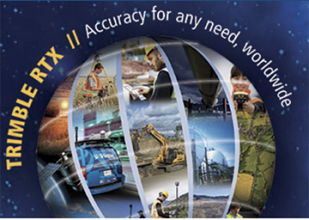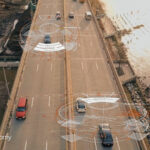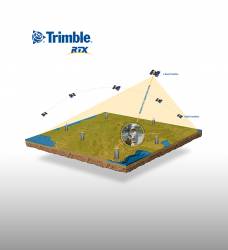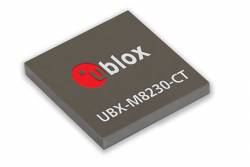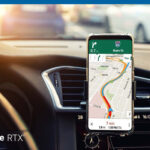At last week’s Munich Satellite Navigation Summit, General Motors provided updates on its use of precise point positioning (PPP) for the Cadillac Super Cruise.
During a session titled “Future of Precise Point Positioning for Autonomous Systems” on March 6 in Munich, panelist Curtis Hay described the Level 2 Automation now available on the 2018 Cadillac CT6 sedan. Hay, Technical Fellow, General Motors, said the system has been driven on all mapped highways in the United States. The hands-free highway driving system was launched in Canada and the U.S. in Q3 2017, Hay said.
Trimble had recently announced details regarding General Motors’ use of Trimble RTX (Real-Time eXtended) technology as the high-accuracy GNSS/GPS correction source to deliver absolute positioning to vehicles equipped with GM’s Super Cruise hands-free highway driving system.
GM customers using Super Cruise featuring Trimble RTX technology can have peace of mind on the road knowing that RTX plays an important role in maintaining lane position for hands-free driving on divided highways, said Trimble, which has a long history of pioneering automation and vehicle autonomy to improve productivity-from providing positioning solutions for some of the earliest robotic applications in the 1990s to delivering automated steering for farm tractors, automated blade control for earthmoving equipment and providing advanced positioning technology for fully autonomous trucks. Trimble is now enabling semi-autonomous operations for passenger vehicles with Trimble RTX technology, delivering high-accuracy GNSS corrections via a global network to support absolute vehicle positioning in combination with other sensors and inertial dead-reckoning.
“Through our collaboration, the combined technologies of GM and Trimble will transform the way the world drives,” said Patricia Boothe, vice president of Trimble’s Advanced Positioning Division, in a press release. “Trimble RTX is now influencing how we interact with our vehicles and the environment around them-helping to minimize driver fatigue and improve the assisted driving experience.”
Trimble RTX technology provides real-time, multi-constellation GNSS positioning capable of achieving better than 1.5 inches accuracy. Standard GPS signals can drift up to 25 feet, which could cause incorrect lane identification. Lane-level accuracy is a critical enabler in advanced driver assistance systems increasingly being used on highways. When used in conjunction with high-definition maps, cameras, radar and inertial sensors, Trimble RTX improves lane-level positioning performance for semi-autonomous and autonomous vehicles.
Trimble’s RTX technology uses signals captured by more than 100 Trimble GNSS reference stations around the globe. Trimble RTX corrects the signals for atmospheric conditions, satellite orbit and time synchronization errors and then sends those signals to GM vehicles with Super Cruise via OnStar 4G LTE cellular. The Trimble network is supported by redundant servers that are monitored 24/7 by a team of network engineers and IT specialists ensuring optimal signal performance and reliability for drivers who will depend on it.
Hay described the hands-free highway driving system being used by GM as “cruise control with steering.” He told attendees in Munich that he tested the technology while driving the car to work for weeks in Michigan.
“It was really hard giving it back,” he said. “The experience of taking your hand off the wheel is remarkable.”
While stating that “GNSS is absolutely critical,” Hay added that autonomous vehicles cannot operate safely with GNSS alone. He addressed LiDAR and precise mapping while explaining how the hands-free driver assistance programs function.
Hay was just one of many speakers who addressed autonomous vehicles at the Munich Satellite Navigation Summit last week as autonomy was a prominent theme all week in Munich.

